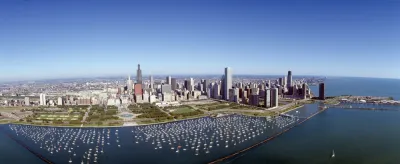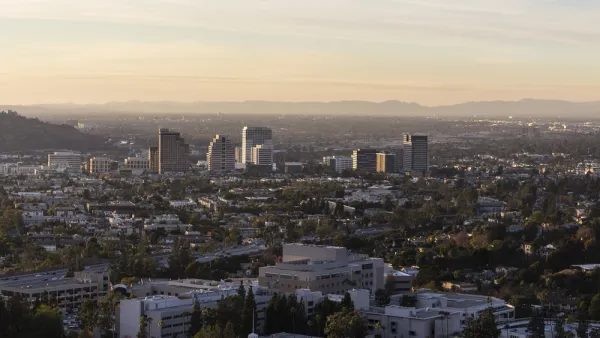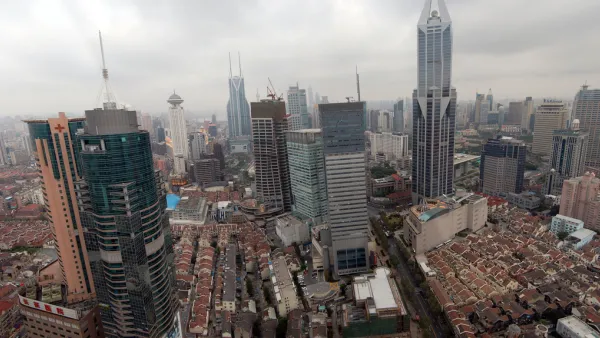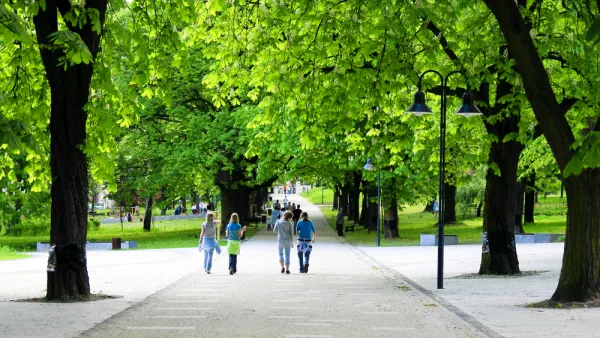With nation-states often wracked by internal political divides and often unable to cooperate with each other, cities have begun to forge their own international relationships. A new, urban approach to foreign policy is emerging.

It's become a truism of globalization that New York City has more to do with London, Dubai, or Tokyo than it does with Buffalo, Rochester, or Utica. The same could be said of any other major city: global relationships often matter more than intra-regional and even intra-national relationships. Today, those relationships are based on everything from trade to flows of capital to shared cultures. Cities are becoming more deliberate in their efforts to form partnerships and solidify these ties, regardless of what their respective national governments are up to.
"(This) outward-looking strategy that has been labeled 'foreign policy for cities,' 'city diplomacy' and by some academics, 'paradiplomacy.' Sao Paulo, London, Hong Kong, New York and other megacities are swapping information and forging powerful alliances with far-flung counterparts in new and strategic ways."
These were topics discussed at the Chicago Forum on Global Cities several weeks ago. This trend is, in many ways, the realization of Saskia Sassen's theories about global urban networks.
"The efforts go beyond traditional business attraction moves, branching into collaboration in the arts, education and urban issues, from pollution to poverty. If done well, a city can gain a reputation as a hotbed of innovation, a team player on pressing urban problems and a prime location for foreign investment, business partnerships and tourism."
"In a world where national governments are negotiating more and more trade agreements that make national borders much less relevant, it is essential for cities to have a strategy for international relations," former Toronto Mayor David Miller told the Chicago Tribune. Otherwise, he said, "they risk becoming insular and isolated."
Though cities occupy an informal role in global diplomacy, they are increasingly seen as more functional than nation-states are, with clear objectives and stronger mutual interests with their global counterparts.
"'Independent nation-states don't play well in the sandbox — they have reacted to problems by waging war for a long time,' said Benjamin Barber, author of 'If Mayors Ruled the World: Dysfunctional Nations, Rising Cities,' a book (one of Planetizen's Top Books of 2015) that builds a case for a global parliament of mayors to tackle urban problems. Cities, he argues, are less hamstrung by global tensions as well as by national-level partisan politics."
FULL STORY: As borders blur, cities mull 'foreign policies'

Analysis: Cybertruck Fatality Rate Far Exceeds That of Ford Pinto
The Tesla Cybertruck was recalled seven times last year.

National Parks Layoffs Will Cause Communities to Lose Billions
Thousands of essential park workers were laid off this week, just before the busy spring break season.

Retro-silient?: America’s First “Eco-burb,” The Woodlands Turns 50
A master-planned community north of Houston offers lessons on green infrastructure and resilient design, but falls short of its founder’s lofty affordability and walkability goals.

Test News Post 1
This is a summary

Analysis: Cybertruck Fatality Rate Far Exceeds That of Ford Pinto
The Tesla Cybertruck was recalled seven times last year.

Test News Headline 46
Test for the image on the front page.
Urban Design for Planners 1: Software Tools
This six-course series explores essential urban design concepts using open source software and equips planners with the tools they need to participate fully in the urban design process.
Planning for Universal Design
Learn the tools for implementing Universal Design in planning regulations.
EMC Planning Group, Inc.
Planetizen
Planetizen
Mpact (formerly Rail~Volution)
Great Falls Development Authority, Inc.
HUDs Office of Policy Development and Research
NYU Wagner Graduate School of Public Service




























